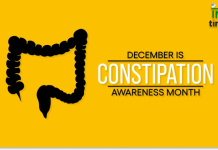
World Psoriasis Day, observed on October 29th, is dedicated to raising global awareness about psoriasis, a chronic skin condition that affects millions worldwide. This day aims to educate the public, debunk misconceptions, and promote better care and understanding for those living with psoriasis. The theme for 2024 focuses on empowering patients through information and ensuring that everyone has access to proper treatment and support.
Understanding Psoriasis
Psoriasis is a long-lasting autoimmune disease that primarily affects the skin. It results from an overactive immune response, which causes skin cells to multiply at an accelerated rate. Instead of shedding off, these cells accumulate on the surface, leading to thick, scaly patches of skin.
There are several types of psoriasis, including:
- Plaque Psoriasis: The most common type, characterized by red, raised plaques covered with a silvery scale.
- Guttate Psoriasis: Small, drop-shaped sores on the arms, legs, and torso.
- Pustular Psoriasis: White pustules surrounded by red skin.
- Inverse Psoriasis: Smooth, red patches found in skin folds.
- Erythrodermic Psoriasis: A rare and severe form, leading to widespread redness and shedding of the skin.
The Symptoms of Psoriasis
The symptoms of psoriasis can vary, but the most common signs include:
- Red patches of skin covered with silvery scales
- Dry, cracked skin that may bleed
- Itching, burning, or soreness
- Thickened or pitted nails
- Stiff and swollen joints
While psoriasis primarily affects the skin, it can also lead to joint pain and inflammation, a condition known as psoriatic arthritis. The impact of psoriasis goes beyond physical symptoms, as it can significantly affect a person’s quality of life, causing emotional and psychological distress.
Psoriasis by the Numbers
Psoriasis affects approximately 2-3% of the global population, which translates to over 125 million people worldwide. It is one of the most prevalent autoimmune diseases, and its impact is not limited to a specific region or demographic. Psoriasis knows no boundaries, and that’s why World Psoriasis Day aims to raise awareness for all those affected, regardless of where they live.
Causes and Triggers of Psoriasis
The exact cause of psoriasis is still unknown, but it is generally believed to be a combination of genetic predisposition and environmental factors. If one or both parents have psoriasis, there is a higher chance that their children may develop it as well.
Environmental triggers that can worsen or spark the onset of psoriasis include:
- Stress: Emotional and mental stress can exacerbate symptoms.
- Infections: Certain infections, such as strep throat, can trigger psoriasis flares.
- Cold weather: Dry, cold weather may worsen psoriasis symptoms.
- Smoking and alcohol: Both are linked to an increased risk of psoriasis.
- Certain medications: Medications like lithium or beta-blockers may trigger or worsen psoriasis.
The Role of the Immune System
Psoriasis is closely linked to the immune system, specifically to an overactive immune response. The immune system mistakenly attacks healthy skin cells, thinking they are harmful. This leads to the rapid growth of skin cells and the formation of scaly patches. Inflammation plays a key role in this process, making psoriasis an inflammatory condition.
Living with Psoriasis
For many, living with psoriasis means managing both the physical and emotional toll of the disease. The visible nature of psoriasis can lead to self-consciousness, anxiety, and even depression. People with psoriasis often struggle with self-esteem due to the appearance of their skin.
Fortunately, with the right treatment plan and support, it is possible to manage symptoms effectively. Regular consultation with healthcare professionals, following prescribed treatments, and maintaining a healthy lifestyle can make living with psoriasis more manageable.
Treatment Options for Psoriasis
There is currently no cure for psoriasis, but several treatment options are available to help manage symptoms and reduce flare-ups:
- Topical treatments: Creams and ointments containing corticosteroids, vitamin D, or salicylic acid can help reduce inflammation and slow down the growth of skin cells.
- Phototherapy: Exposure to ultraviolet light under medical supervision can help control psoriasis symptoms.
- Systemic medications: These are oral or injectable medications that affect the entire body and are used for moderate to severe psoriasis.
- Biologic therapies: Targeted therapies that specifically block certain parts of the immune system, helping reduce inflammation and slow down the progression of psoriasis.
Myths and Misconceptions About Psoriasis
Many myths surround psoriasis, which can lead to misunderstandings and stigma. Let’s clear up a few:
- Psoriasis is contagious: False! Psoriasis cannot be spread through touch or contact.
- Psoriasis is just a skin problem: Psoriasis is more than a skin condition; it is an autoimmune disease that affects the body internally as well.
- Only adults get psoriasis: While it is more common in adults, psoriasis can also affect children.
The Stigma Around Psoriasis
Unfortunately, the visible nature of psoriasis means that many people with the condition face stigma and discrimination. Public misunderstandings about psoriasis being contagious or “unhygienic” can contribute to social isolation for those living with the disease. Campaigns like World Psoriasis Day help break down these barriers by raising awareness and fostering understanding.
World Psoriasis Day Activities in 2024
Every year, on October 29th, people across the globe come together to raise awareness for psoriasis. In 2024, activities will include virtual seminars, social media campaigns, and fundraising events. Individuals can participate by joining local events, sharing educational resources online, and advocating for better healthcare access for those affected by psoriasis.
Advocacy and Support Networks
Many organizations worldwide offer support for individuals with psoriasis. These groups provide resources, host community events, and advocate for policy changes that promote better healthcare options. By joining these networks, people with psoriasis can connect with others who understand their experiences and feel less isolated.
The Future of Psoriasis Research
The future of psoriasis treatment looks promising, with continuous advancements in medical research. New biologic drugs are offering hope for more effective long-term control, and scientists are also exploring potential cures through gene therapy and immune system modulation. Ongoing clinical trials hold the potential to unlock new treatment pathways for millions of patients.
Inspiring Stories from Psoriasis Warriors
Many individuals living with psoriasis have inspiring stories to share. These “psoriasis warriors” often overcome immense challenges, proving that psoriasis does not define them. Their resilience and strength are a testament to the power of self-acceptance and the importance of having a supportive community.
Conclusion
World Psoriasis Day serves as a global platform to spread awareness about this widespread yet misunderstood condition. As we reflect on the significance of this day, let’s commit to educating ourselves and others, supporting those affected by psoriasis, and advocating for better treatment options. Together, we can foster a more understanding and compassionate world for everyone living with psoriasis.
FAQs
- What is World Psoriasis Day?
World Psoriasis Day is observed on October 29th to raise awareness about psoriasis and support those living with the condition. - Is psoriasis contagious?
No, psoriasis is not contagious. It cannot be spread from person to person through touch. - Can psoriasis be cured?
Currently, there is no cure for psoriasis, but treatments are available to manage symptoms and reduce flare-ups. - How can I support someone with psoriasis?
Offer emotional support, educate yourself about the condition, and help combat stigma by sharing accurate information about psoriasis. - Are there natural remedies for psoriasis?
While natural remedies may help relieve some symptoms, it is essential to consult a healthcare provider before starting any treatment.



































